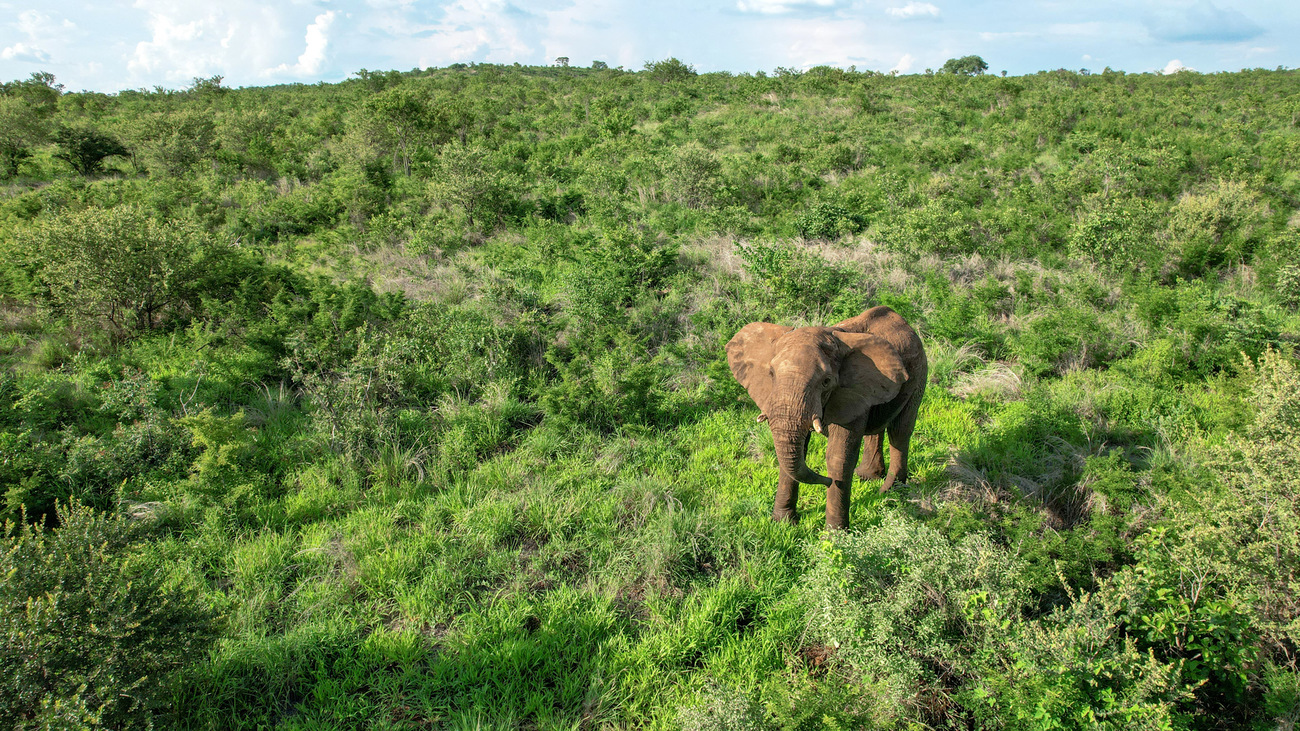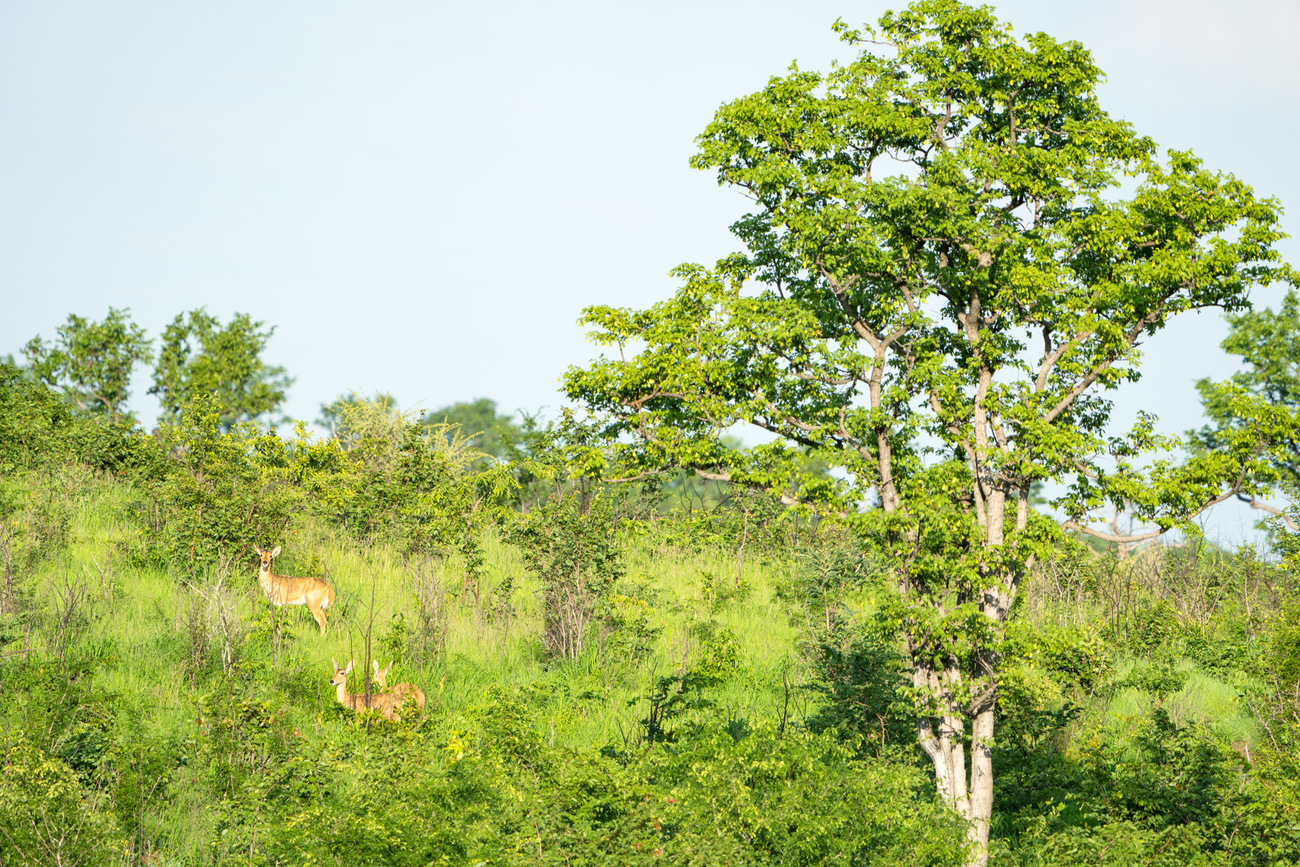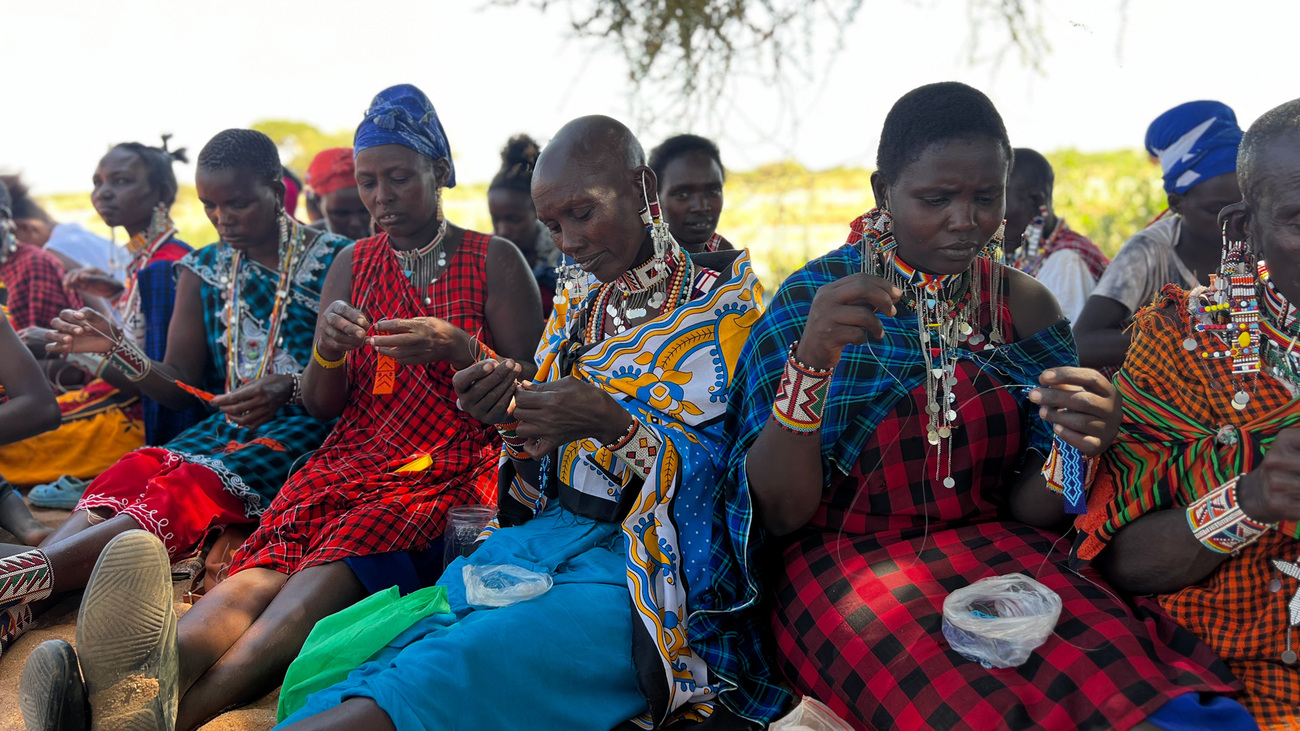Blog
Kenya’s Lamu Port can balance economic development and environmental protection
Read moreBusinesses step up to protect wildlife
African savannah elephants roam across the breathtaking Kavango–Zambezi Transfrontier Conservation Area (KAZA TFCA), the world’s largest land-based, transboundary conservation area. Spreading into five southern African countries—Angola, Botswana, Namibia, Zambia, and Zimbabwe—it’s home to almost half of Africa’s elephants, plus hippos, rhinos, lions, and many more vulnerable and endangered species.

Unsurprisingly, considering the magnificent biodiversity found here, the area is also popular with poachers. Elephants, rhinos, and pangolins are especially targeted for their ivory, horns, and scales. While the landscape’s connectivity is crucial for wildlife to freely roam across their home ranges, the international nature of the conservation area makes policing and prosecuting wildlife crimes much more difficult.
In addition, landscapes across East and southern Africa face pressure from human-wildlife conflict, due to encroachment into natural areas and community’s reliance on natural resources for their lives and livelihoods. Not only is it important to protect these wild habitats from poachers, but it’s also crucial to support communities in developing sustainable income sources and coexistence with wildlife.
That’s why IFAW was thrilled when Munchkin, an award-winning global lifestyle company, stepped up to donate US$1 million to our Room to Roam initiative, becoming a primary investor in leasing 90,000 acres of crucial land for elephant movement.
We are also honored to partner with David Rio, an award-winning premium chai and tea company, in Kenya’s Southern Rangelands landscape. David Rio teamed up with IFAW to support rangers, connect habitats, and engage communities in conservation.
Right now, conservation projects face a tremendous gap between the money necessary to protect the planet and the funding that governments have pledged to support those projects.
That funding gap makes our partnerships with businesses like Munchkin and David Rio more vital than ever before.
According to UNEP’s 2023 State of Finance for Nature report, nature-based solutions remain severely underfunded. Current financial flows allocated towards nature-based solutions stand at US$200 billion, only 37% of what is needed to reach climate, biodiversity, and land degradation targets by 2030.

Throughout Africa, conservation efforts have always been chronically under-resourced and underfunded. A comprehensive study by The New York Times showed that 90% of nearly 300 protected areas on the continent face funding shortfalls. This directly translates to dwindling populations of big cats and herbivores like rhinos and elephants, as well as the degradation of habitats, which has negative consequences for both wildlife and human communities sharing the landscape.
Out of that US$200 billion, governments provided 82% of the funding. With many countries facing increasing economic and political pressure on budgets, we urgently need private-sector partners, like Munchkin and David Rio, to step up and fill the funding shortfall that stands in the way of us all having a liveable future on a healthy planet.
Many factors influence whether conservation projects will succeed, including communities, rangers, logistics, and infrastructure. Similarly, obstacles to conservation appear in vastly different shapes and forms. Tackling these challenges sometimes means searching for unorthodox solutions, such as collaborating with partners from different sectors with diverse expertise and interests.
Our corporate partners support our work in ways that are meaningful to them and their missions. Munchkin seeks a sustainable future for children while encouraging empathy and compassion. Munchkin’s support was crucial in establishing a poaching-free zone in northwestern Zimbabwe, which resulted in zero elephant poaching incidents in 2023. Their funding has significantly improved the wellbeing and effectiveness of the rangers who dedicate their lives to protecting these animals—often at great personal cost—by building two comfortable ranger houses and providing two vehicles that improve their mobility.
Munchkin also raises awareness of conservation issues through its WildLove collection, which features at-risk animals on its products and includes educational packaging, so the next generation of animal lovers grows up passionate and knowledgeable about why we need to protect wildlife.
David Rio commissioned handmade bracelets from the Esiteti Women’s Group in Kenya. The company gifts these unique creations to corporate clients, reflecting the brand’s commitment to empowering women through economic opportunities and celebrating local artisanship. Through this project, IFAW and David Rio are paving a path to financial freedom for Maasai women, who live close to nature, breaking generational chains of poverty and helping to prevent human-wildlife conflict.

Through David Rio's generous support, we also built the David Rio Community Ranger Base in Kenya, providing comfortably furnished living quarters for ten rangers in the 29,000-acre Illaingarunyoni Conservancy. This provided the conservancy with full-time protection from threats like poaching, securing one of the last remaining wildlife corridors between Amboseli National Park and the Maasai Mara–Loita landscapes.
The challenges we face as a global community are significant and complex. The solutions will require creative thinking, new resources, and partnerships that go beyond traditional boundaries.
Corporate partners are key to addressing these challenges. We are always eager to work with partners who can help us find, develop, and fund innovative solutions to the climate and biodiversity crisis we will face if we don’t act now and act boldly.
Contact partnerships@ifaw.org to learn more.
Our work can’t get done without you. Please give what you can to help animals thrive.
Unfortunately, the browser you use is outdated and does not allow you to display the site correctly. Please install any of the modern browsers, for example:
Google Chrome Firefox Safari